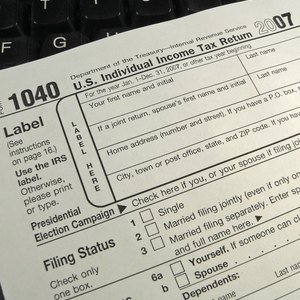
A brief perusal of tax websites may lead you to believe that no statute of limitations exists for payment of California taxes. One site, for instance, flatly states, "Some [states], like California have no statute of limitations and the state tax collector can indeed hound you forever." In most circumstances, however a statutory time limit exists. In one instance, it does not.
The Clock Starts When You File
In California, the state recognizes no time limit on the collection of taxes from residents who fail to file. Once you file, the tax clock begins. When it runs out depends upon several other factors. If you file your California tax return, but fail to pay the taxes due, in the absence of any extenuating circumstances, the state has four years to collect. However, specific circumstances may create an alternative statute of limitations, which effectively extends the liability period. That extension has no statutory limit.
Statue Extended by Federal Determination
Subsequent actions by the Internal Revenue Service (IRS) may have the effect of extending the period of your California tax liability. For example, the first year you may file your state taxes and pay what you believe you owe according to your federal return. In the ninth year, the IRS may review your first year return and decide you owe taxes for that year. Even though the California statute of limitations has expired on your first year taxes, this adjustment by the IRS may cause the California Franchise Tax Board to reexamine your first year return in the light of the ninth year federal ruling and hold you liable.
An Ironic Appeal Outcome
In one specific case slightly different than the one cited above, taxpayers actually appealed the IRS ruling and won in federal court on the ground that since the IRS waited 14 years before making their ruling, the 10-year federal statute of limitations had exp[ired. But since the court did not overturn the underlying grounds for the reassessment, the State of California argued in state Supreme Court that the federal reassessment created a valid tax liability and that the alternative statue of limitations in California began running when the IRS reviewed and reassessed federal taxes. The State won.
Statute of Limitations on Overpayments
Note that while Section 19306 of the California Revenue and Taxation Code provides that you have four years from the date of original filing to apply for a refund for overpayments, this only holds true if you file within the filing deadline. If you file within the extension period (October 15th), you do have four years from the date of actual filing; if you do not file within the extension period, the statute of limitations for recovery of overpayments begins the previous April 15.
References
Writer Bio
I am a retired Registered Investment Advisor with 12 years experience as head of an investment management firm. I also have a Ph.D. in English and have written more than 4,000 articles for regional and national publications.

